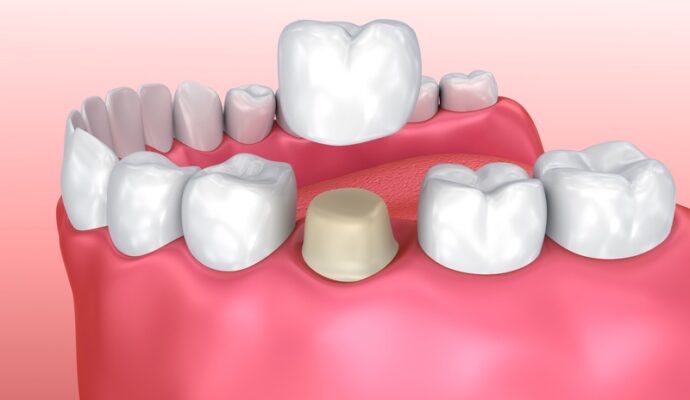Oral surgery can be a daunting experience, but with the right preparation and post-operative care, you can ensure a smooth recovery. Whether you’re having a routine procedure or something more complex, taking specific steps can make all the difference. Here’s a detailed look at how you can make your recovery as comfortable as possible.
Prioritize Rest for Faster Healing
After any surgical procedure, your body needs time to heal. Rest is crucial. Make sure to take it easy for a few days following your surgery. Avoid any rigorous activities and give yourself time to relax. Your body will thank you for the opportunity to heal without added stress.
Follow Your Dentist’s Instructions Carefully
Every surgery is unique, and your dentist or oral surgeon will provide specific guidelines tailored to your procedure. Be sure to follow these instructions diligently. They may include dietary restrictions, medication recommendations, and activity limitations.
Manage Pain and Swelling
Pain and swelling are common after oral surgery. Here’s how you can manage them:
-
Use ice packs on your face to reduce swelling.
-
Take prescribed pain medications as directed.
-
Try to keep your head elevated, even while sleeping, to minimize further swelling.
Eat Soft Foods That Are Easy to Swallow
Your mouth will be sensitive after surgery, and eating soft foods can help reduce discomfort. Consider the following:
-
Mashed potatoes
-
Yogurt
-
Applesauce
-
Broth-based soups
Stick to these gentle options until you’re comfortable moving back to regular foods.
Stay Hydrated Without Strain
Drinking plenty of fluids is essential, but avoid using straws as the suction can disrupt healing. Opt for water and avoid carbonated drinks and alcohol. A proper hydration routine ensures your body has the resources it needs to heal efficiently.
Keep Your Mouth Clean
Maintaining oral hygiene is important, but be gentle. You’ll likely receive specific instructions on how to care for your mouth. Here’s a typical routine:
-
Rinse gently with a saltwater solution to clean your mouth.
-
Avoid brushing the surgical site until your dentist gives the go-ahead.
-
Use any special oral rinse prescribed by your doctor.
Be Mindful of Bleeding
Some bleeding is normal after oral surgery. If it continues, try these steps:
-
Bite down gently but firmly on a piece of gauze to help clotting.
-
Use tea bags as an alternative; tannic acid can promote clotting.
If heavy bleeding persists, contact your dental professional immediately.
Oral surgery in Seymour offers various procedures to ensure patients can benefit from prompt and efficient recovery instructions aligned with top-notch care.
Avoid Smoking and Alcohol Consumption
Smoking and alcohol can interfere with the healing process after oral surgery. Smoking reduces blood flow to the wound and can cause complications. Similarly, alcohol can interact negatively with prescribed medications and impede proper healing. It’s best to avoid these substances during your recovery period.
Watch Out for Signs of Infection
While rare, infections can occur after oral surgery. Be on the lookout for these signs:
-
Increased pain or swelling after several days
-
Fever
-
Pus or unusual discharge
If you notice any of these symptoms, contact your oral surgeon promptly.
Attend All Follow-Up Appointments
Your follow-up appointments are essential to ensure everything is healing correctly. Your dentist will check the surgical site, remove any non-dissolvable stitches, and address any concerns you may have. Don’t skip these visits, even if you feel fine — they are a vital part of your recovery.
For those undergoing more specialized procedures like Louisville, KY wisdom teeth removal, these follow-ups ensure that everything is proceeding as expected.
Bring Up Any Concerns
If something doesn’t feel right or you have questions, don’t hesitate to contact your oral surgeon. They are there to support you through every step of your recovery journey. Remember, communicating openly is crucial in ensuring a smooth recovery.
Stay Patient with Yourself
Recovery takes time, and it’s important to be patient with yourself. Everyone heals at their own pace, and comparing your progress to others can cause unnecessary stress. Trust the process and allow your body to heal in its own time.
Mental Wellbeing is Key
Don’t underestimate the importance of mental well-being during recovery. Engage in relaxing activities you enjoy, whether it’s watching a favorite movie, reading a book, or meditating. A positive mindset can make your recovery journey more pleasant.
Choosing a reputable place, such as a facility known for Louisville oral surgery, ensures that your needs will be met with professionalism and care, adding to the peace of mind you need during this time.
Utilize Support from Family and Friends
Recovering from oral surgery isn’t something you have to do alone. Lean on family and friends for support, whether it’s helping with meals, running errands, or just keeping you company. Their support can provide both physical and emotional comfort.
Prepare Your Home Space
Before your surgery, set up a cozy recovery area at home with everything you need, like soft pillows, cozy blankets, entertainment options, and easy access to essentials. Having a comfortable environment can help you relax and make the healing process smoother.
Stay Positive and Focused on Your Recovery Goals
Keep in mind that diligence and a positive outlook are key components of your recovery. Setting goals and tracking your progress can offer a sense of achievement and motivation. Celebrate small victories along the way and stay focused on the long-term benefits of your procedure.
Final Thoughts
By following these guidelines and using the resources provided from the start, you’re setting yourself up for a successful recovery journey. Remember, healing is not only about physical recovery but also about nurturing your overall well-being. With the right care and patience, you’ll be back to your normal routine in no time.




